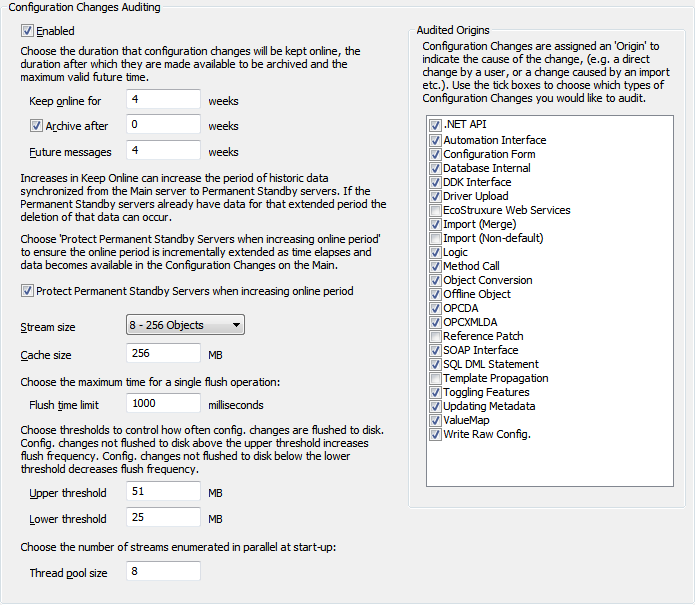ClearSCADA includes a Configuration Changes Auditing feature which allows you to configure your system so that it keeps a detailed record of configuration changes. When the Configuration Change Auditing feature is enabled, the extended configuration change data is stored in Configuration Change files which are completely separate to Event Journal and Historic Data files. They include detailed information about the configuration changes that take place on your system. This is useful if you need to investigate what changes were made (the Event Journal keeps a record of configuration changes, but does not record the details of each change).
The Configuration Changes Auditing feature is disabled by default. This is because, when enabled, the feature can affect system resources - potentially, it can require as many resources as the Event Journal. Before you enable the Configuration Changes Auditing feature, you should:
- Consider whether you really need to have detailed records of configuration changes. If you do, you will need to enable the feature. To limit the effect of Configuration Changes Auditing on system performance, we recommend that you try and limit the types of configuration changes that are audited.
- Use the Audited Origins settings to limit the types of configuration changes that are recorded (where possible). The fewer types of configuration changes that are recorded, the less impact the feature will have on system performance.

The Configuration Changes Auditing settings consist of two separate groups - the main Configuration Changes Auditing settings and a sub-group of settings called the Audited Origins, (see Configuration Changes Audited Origins).
For more information how to use the Configuration Changes Auditing settings, see the topics that are listed in the gray footer section at the bottom of this topic. Select the relevant entry to display the topic that you require.
Further Information